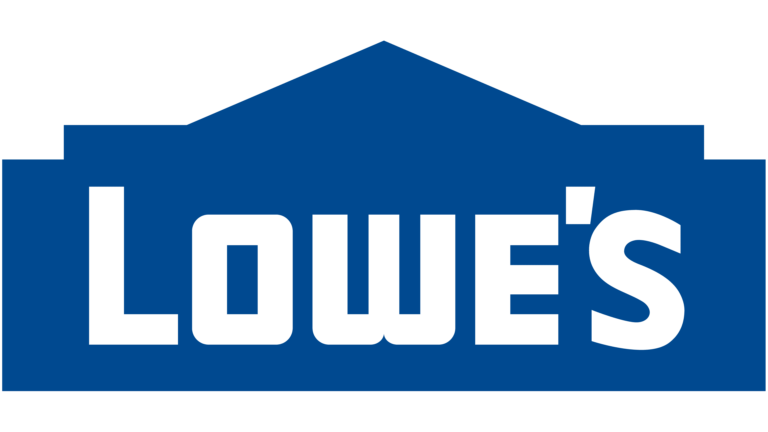What is Invoice Factoring?
Many small business owners struggle with cash flow issues due to delayed payments from customers. Invoice factoring provides immediate cash flow by allowing businesses to convert unpaid invoices into cash quickly, helping them manage short-term expenses and maintain liquidity. It’s also known as accounts receivable factoring.
Small business owners often turn to finance methods like invoice factoring and invoice financing to address cash flow issues and access immediate cash flow, ensuring they can cover operational costs without waiting for customers to pay their invoices.
Invoice Factoring involves selling invoices at a discounted rate for an immediate influx of working capital. Factoring is a type of business financing known as debt factoring, where businesses sell their unpaid invoices to a third-party factoring company.
The process involves selling invoices to a third party, specifically a third-party factoring company. The factoring company directly pays the business and then takes over payment collection responsibilities. The factoring company then owns the invoice and collects the invoice value from your customers. In this way, the factoring company acts as an extension of your accounts receivable collections team.
Invoice factoring allows companies to convert outstanding invoices into cash before their customers pay. The factoring company retains a percentage of the invoice as compensation for its services, as it assumes the risk of issuing funds before the customer pays. Small and medium-sized enterprises often use invoice factoring to maintain operations without waiting for customer payments.
How does Invoice Factoring work?
The invoice factoring process, also known as the factoring process, involves a series of steps where a business sells its accounts receivable to a third-party factoring company. This allows the business to access funds tied up in outstanding invoices quickly.
A business factors, or sells, its invoices—specifically the invoiced amount or total invoice value—for less than the total invoice and receives a percentage of the total invoice value upfront, typically deposited directly into its business bank account, to meet cash flow needs.
The factoring company agrees to purchase the invoices, pays the business a significant portion of the total invoice value upfront, and then takes over the responsibility to collect payment from the customer. The factoring company handles payment collection and receives the invoice payments from the customer. After deducting its fees, which may include credit check fees for assessing customer creditworthiness, the factoring company pays the remaining balance to the business.
There are several components to invoice factoring and several steps in the process. Let’s look at each element and then break down the steps involved.
The Invoice Seller
The invoice seller is the company that is factoring its invoices. Invoices are generated when a business sells goods and services on credit. The invoice acts as an IOU and becomes an accounts receivable asset. The invoice seller then factors that asset for working capital.
The Invoice Debtor
The invoice debtor is the company that purchases the goods or services on credit and owes money to the invoice seller.
The Factor
The factor, or factoring company, purchases the invoice at a discounted rate. The factoring company charges a fee for buying the invoice and providing the advance, which is typically deducted from the funds advanced to the business. It then advances a large percentage of the invoice value to the invoice seller and collects from the invoice debtor. After the debtor pays the factor, the factor sends the remaining amount to the invoice seller.
Invoice Factoring Steps
The process works like this:
- Step 1: Issue an invoice to the debtor for goods or services sold on credit.
- Step 2: Factor, or sell, the invoices at a discounted rate to the factoring company.
- Step 3: The factor issues a percentage, called an advance rate, usually in 1-2 business days.
- Step 4: The factor collects from the debtor according to the payment schedule (net 30, 60, 90, or 120 days).
- Step 5: After getting paid, the factor sends the reserve amount to the invoice seller.
Important Terms
- Factor rate: Aka discount rate, the percentage the factoring company keeps for its services. Factoring rates typically range from 1% to 5% of the total invoice value per month, varying based on factors like invoice amount and customer creditworthiness.
- Advance rate: the amount the invoice seller gets upfront, calculated as a percentage of the total invoice or total invoice value.
- Reserve amount: The amount left over after subtracting the advance amount from the discounted total invoice value, paid to the invoice seller after the debtor pays their invoice.
Invoice Factoring Example
XYZ Company has a factoring agreement at a discount rate of 3%. It wants to factor outstanding invoices with a total invoice value (or invoiced amount) of $25,000 to free up cash flow. After applying the discount rate of 3%, the factor purchases the invoice for $24,250.
However, the factoring company won’t receive the entire $24,250 at once. Most factoring agreements stipulate that the factor will issue funds at the advance rate upfront. Advance rates range from 75%-100%, but for our example, we’ll say the advance rate is 90%.
So, the actual amount the company receives up front is 90% of $24,250, which works out to $21,825. The remaining $2,425 becomes the reserve amount. Once the customer pays their invoice, the factor releases the reserve amount to XYZ Company.
Discount rates can change if your customers take longer than expected to pay. Let’s say the 2% rate is if your customer pays within 30 days. If the customer takes longer than 30 days to pay, the 2% fee applies each month the payment is late.
What is a Factoring Company?
A factoring company is a third-party financing business that provides the invoice factoring service. Many factoring companies offer invoice factoring services to businesses across various industries. It purchases invoices at a discounted rate, issues an advance, and then collects the invoice amount from your customers.
Most factoring companies enter into a contracted agreement with the invoice seller. Factoring agreements are for a set period, i.e., 6 months, 1 year, or 2 years.
During the contract period, the invoice seller factors invoices on an ongoing basis. The factoring company becomes the invoice seller’s accounts receivable department, collecting from invoiced customers.
Are all Invoice Factoring Companies the same?
No, there are some key differences between factoring companies. Each company has its policies, limits, and processes. Let’s look at some of the significant differences between companies.
Some companies offer full, partial, or spot factoring, where you can choose to factor all, some, or just individual invoices as needed. In contrast, contract factoring is an arrangement where a business agrees to factor all or a set portion of its invoices over a specified period, providing a more consistent financing solution.
Recourse vs. Non-Recourse
Recourse factoring means your company is liable if your customers default on their invoices. If a customer fails to pay, or if multiple customers fail to pay, your business must cover the loss under recourse factoring. In non-recourse factoring, you don’t have to pay if your customers default on an outstanding invoice. Still, it only applies in specific situations—here, the factoring company assumes the risk if a customer fails to pay. Non-recourse factoring is more expensive, but the added protection might make it worth it. However, in most cases, when a customer defaults, you’re still liable for the cost.
Notification Factoring
Some companies will notify your customers when they purchase the invoices, and others will not. If you don’t want your customers alerted when you sell their invoices, look for a company that won’t notify them.
Full, Partial, or Spot Factoring
Each company has different rules on what invoices a company is required to factor. Full accounts receivable factoring companies stipulate that the invoice seller must factor all of its invoices.
Other companies offer partial factoring, meaning that the invoice seller only factors some of their invoices. Some require a business to sell a fixed percentage, such as 50%, while others give you the freedom to upload any invoices.
Spot factoring is when a company factors individual invoices as they come in. The benefit of spot factoring, when available, is that it can reduce the time between issuing and factoring the invoice.
Industry-Specific
Some invoice factoring companies work with various sectors, while others focus on a specific industry. For example, transportation industries like trucking and freight factor invoices more than any other industry. Several companies cater to this particular segment with extra incentives like a fuel discount card or offering commercial truck insurance.
Additional Services
Some invoice factoring companies stand out because they offer enhanced services to help you process invoices. Some additional services to consider when looking for a factoring company include:
- Easy invoice uploads.
- Integration with your accounting software.
- Credit checks on your customers.
- A/R processing tools.
- Online portals or mobile apps for convenient processing.
What are the qualifications for Invoice Factoring?
Getting approved for invoice factoring is much easier than other business financing programs. Unlike a bank loan, which typically requires extensive documentation and stricter credit checks, invoice factoring has more flexible qualification requirements. One of the main reasons businesses pursue invoice factoring is that they couldn’t qualify for a less expensive alternative, such as traditional bank loans.
Businesses with slow-paying customers often turn to invoice factoring or an invoice financing company to address cash flow gaps and maintain steady operations.
Since repayment comes from your customers paying their invoices, factoring companies scrutinize their credit more than yours. Your customers’ reliability is a critical factor in invoice financing approval.
The most common industries that qualify and apply for invoice factoring are:
- Agriculture & farming
- Business consulting
- Construction & contractors
- Distributors
- Healthcare & medical suppliers
- Legal services
- Manufacturers
- Marketing services
- Oilfield & gas
- Retail
- Staffing companies
Minimum Qualifications
Some financial institutions don’t have minimum requirements to qualify and accept startup businesses, but they typically have the highest rates. In general, approved companies meet the following minimum requirements:
- A credit score of 550+
- $250k in annual revenue.
- At least one year in business.
How to apply for Invoice Factoring:
You can apply for invoice factoring through United Capital Source with the following steps.
Step 1: Make sure your customers are reliable.
Factoring invoices only works when your customers pay their invoices on time and in full. Ensure your customers will pay before contacting a factoring company.
Step 2: Gather your documentation.
When you apply, the factoring company needs to review the following documents:
- Driver’s license.
- Voided business check.
- Bank statements from the previous three months.
- Business tax return.
- Accounts receivable aging report, Accounts payable report, and debt schedule.
Step 3: Apply.
You can complete our one-page application or give us a call to apply. Either way, you’ll need to provide the information above and the invoice amount you want to sell.
Step 4: Speak to a representative.
Once you apply, one of our representatives will reach out to discuss the factoring fee, factoring rate, and terms attached to the sale. You’ll get a breakdown of all costs, so you don’t have to worry about hidden fees.
Step 5: Receive approval.
The entire process takes about two weeks to finalize. Funds will appear in your bank account 1-2 days after completing the application.
What are the advantages of Invoice Factoring?
Invoice factoring qualifications are less stringent than a loan, and approval depends more on your customers’ credit than yours. Some factoring companies don’t require a minimum credit score, making it a feasible solution for businesses that don’t qualify for a traditional loan.
Small business invoice factoring is especially beneficial for small and medium-sized businesses seeking to improve cash flow and access working capital quickly.
Invoice factoring isn’t a loan, so you don’t incur any debt. It’s a viable alternative for companies in urgent need of funding that don’t want to add to their debt.
Some companies prefer that the factoring company collect on the invoice. It can save time and money since the factor essentially acts as your collections department. However, some businesses do prefer to maintain a direct relationship with their customers. If this applies to you, look for a company that doesn’t notify your customers when it acquires their invoices.
The most significant benefit is turning accounts receivable into working capital. Unpaid invoices are like unsold inventory – the longer they go without converting into cash for your business, the less profitable they become. Invoice factoring lets you unlock that capital sooner so you can reinvest it into your business.
What are the disadvantages of Invoice Factoring?
The biggest drawback is that invoice factoring is more expensive than traditional loans. Like most near-term and short-term financing, invoice factoring carries higher rates and fees than conventional long-term business financing. Factoring company charges are typically higher than traditional bank loan interest rates, making invoice factoring a costlier option compared to bank loans.
Due to the complex nature of receivables factoring, it’s also difficult to compare costs to a loan or other forms of financing. The time it takes for your customers to pay their invoices determines your factoring fee, so the cost could vary.
While you don’t need good credit for approval, your customers do. If your customers are unreliable and already paying late, you are unlikely to get approved. Invoice factoring works best for companies that sell on credit to creditworthy businesses.
Factoring accounts receivable is not the only way to avoid late payments and convert invoices into cash. Sometimes, all you need to do is improve billing. You can try automating your invoices, giving customers more ways to pay, and improving your collections team’s efforts.
We prepared a pros and cons list for a quick summary.
Pros & Cons:
Pros:
- Converts Receivables into Cash: Unlocks working capital tied up in unpaid invoices so you can reinvest in your business faster.
- Easier to Qualify: Approval is based more on your customers’ credit than your own, making it accessible even with low business credit.
- No New Debt: Since factoring isn’t a loan, you avoid adding liabilities to your balance sheet.
- Saves Time on Collections: Some factoring companies handle collections, freeing up time and resources for your team.
Cons:
- Higher Cost: Typically more expensive than traditional loans, with higher fees and shorter terms.
- Variable Fees: Costs depend on how long your customers take to pay, making fees unpredictable.
- Customer Credit Risk: If your customers have poor payment histories, you might not qualify.
- Not Always Necessary: Some businesses can improve cash flow with better invoicing practices rather than factoring.
Frequently Asked Questions
Here are some of the most common questions about invoice factoring.
Why do companies Factor Invoices?
Many companies don’t get paid right away when providing goods and services. Businesses like construction contractors and medical practices often wait weeks or even months before getting paid.
When a customer doesn’t pay upfront, your business issues an invoice for the amount due. If you don’t receive that payment before monthly bills are due, the money you receive becomes less profitable.
Companies often use invoice factoring to address cash flow issues caused by delayed payments and to unlock the value of their accounts receivable. On the other hand, the invoice itself is an asset as it represents future money coming into the business. When a company is stuck between needing working capital and having capital tied up in accounts receivable, it can use invoice factoring to improve cash flow.
Essentially, invoice factoring allows companies to access the capital in their accounts receivable assets earlier in exchange for a fee. Companies then use that cash as working capital for short-term cash flow needs like purchasing new inventory or investing in marketing.
Another reason companies use invoice factoring is that it’s easier to qualify for than a loan. Many startups, younger businesses, and those with poor credit use invoice factoring until they meet the minimum requirements for a more traditional loan.
Is Invoice Factoring a Loan?
No, invoice factoring is not a loan. With a loan, you receive cash up front, which you then repay plus interest in fixed monthly payments. In contrast, a bank loan requires you to make regular repayments with interest. At the same time, debt factoring (another name for invoice factoring) involves selling your outstanding invoices to a third party for immediate cash, without taking on debt.
With invoice factoring, you don’t incur any debt, the financing arrangement doesn’t impact your credit, and your customers repay the advance when paying off their invoices. You might sometimes see invoice factoring called an accounts receivable loan or invoice financing, but don’t let those terms confuse you – it is not a loan.
Small Business Loans
If you are interested in pursuing a business loan, several options exist.
You can look into the following:
- SBA Loans
- Equipment financing
- Business line of credit
- Merchant cash advance
- Working capital loans
- Business term loan
- Revenue-based financing
Can I get Invoice Factoring with bad credit?
Yes, getting approved for invoice factoring with bad credit is possible. That’s one of the main advantages.
Since repayment comes from your customers paying their invoices, factoring companies look more closely at their credit than yours. Some invoice factoring companies don’t have any credit score requirements.
The companies that set a minimum credit score often set it low. For example, some factoring companies only require a minimum credit score of 550.
While you can get invoice factoring with bad credit, we should note that it’s an expensive form of business financing. In addition, you cannot build or repair credit using invoice factoring.
Is Invoice Financing the same as Invoice Factoring?
While the two terms sound similar, there are significant differences between them. Both invoice factoring and invoice financing help you convert accounts receivable into working capital, but in different ways. Invoice financing involves borrowing against your unpaid invoices from an invoice financing company, and you repay the financing company as your customers pay. In contrast, invoice factoring involves selling your invoices to a factoring company for immediate cash.
Invoice Factoring vs. Invoice Financing
As discussed, invoice factoring is when you sell your unpaid invoices for immediate cash. Invoice financing, also called accounts receivable financing, is when you receive an upfront amount based on the value of your invoices from an invoice financing company. You then repay the loan as your customers pay their invoices.
In invoice factoring, the factoring company owns the invoices and is responsible for collecting payment from your customers. With invoice financing, you still own the invoices, and you collect from your customers.
The factoring fee for invoice factoring is a discounted rate on the sale of the invoice. In invoice financing, you’re charged a factor fee that applies each week the invoice goes unpaid. For example, if your factor fee is 1% but takes four weeks to collect on the invoice, you’ll pay a total factor fee of 4%. The cost for either option tends to run high.
Invoice Factoring vs Invoice Discounting
Invoice discounting offers another way to unlock the value of your outstanding invoices without giving up control of your accounts receivable. With invoice discounting, you use your unpaid invoices as collateral to borrow funds from a lender. Unlike invoice factoring, you remain responsible for collecting payments from your customers and managing your customer relationships.
This approach can be more flexible, as you can choose which invoices to discount and when to access funds. However, you’ll need to repay the borrowed amount, plus interest and any associated fees, once your customers pay their invoices. Invoice discounting can be a good fit for businesses that want to maintain direct contact with their clients and keep control over the collections process. Still, it’s essential to weigh the costs and ensure the terms align with your business goals.
With invoice factoring, the factoring company collects payment from your customers. In invoice discounting, you’re still responsible for collecting payment.
How much does Invoice Factoring cost?
Business factoring is considered one of the more expensive small business financing strategies, but it’s sometimes difficult to assess the full costs. It’s also challenging to determine because each company has different financing structures and service fees.
Factoring company charges may include not only the discount rate but also additional fees such as credit check fees, which are incurred for assessing your customers’ creditworthiness before entering into a factoring agreement.
The discount rate, or factoring fee, is the highest cost, and your company loses that money right off the top. Factoring fees are usually based on how long it takes for customers to pay their invoices. Businesses with a net 30 invoice cycle will get a lower rate than businesses with a 60 or 90-day cycle.
Another question of cost is whether you use recourse or non-recourse factoring, and the reliability of your customers. With recourse factoring, you’re responsible if a customer doesn’t pay their invoices. Non-recourse factoring costs more but comes with the protection of the factoring company taking the financial hit if a customer doesn’t pay.
It would be best to work with a company that is transparent about its fees, as some try to hide them in the factoring agreement. Make sure you carefully read the factoring agreement and question anything that doesn’t make sense – it can save you money down the road.
One way to help mitigate the cost is with price setting. If your business has the leeway to charge customers slightly more, the price increase can help offset the money lost when factoring invoices.
Invoice Factoring – Final Thoughts
Invoice factoring is best for businesses that need working capital and have reliable customers who pay by invoice. There are less expensive business financing solutions, but invoice factoring allows you to access the money tied up in accounts receivable sooner without incurring debt.
As with all business financing, invoice factoring has its own set of risks and benefits. Ensure you carefully review the terms and conditions of any factoring agreement before you sign.
We have additional resources on our accounts receivable factoring page, or you can contact us if you want to learn more or apply.













